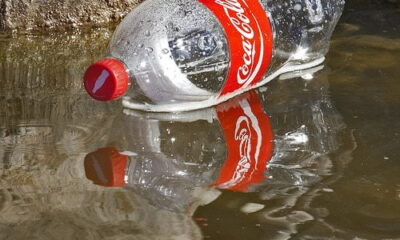

News
P&G to make 230 million bottles a year out of recycled plastic
Consumer products giant Procter & Gamble (P&G) Fabric Care has reinforced its environmental credentials with the announcement of a new environmental initiative which will result in 230 million bottles of flagship brands like Ariel, Dash, Lenor and Unstoppables made out of ‘Post Consumer Recyclate’ (PCR) – recycled packaging.
As the fourth environmental action in a period of just eighteen months, today’s announcement is a continuation of P&G Fabric Care’s journey towards greater environmental sustainability.
The 230 million bottles, which are expected to be produced using PCR, is the equivalent of the distance from the North Pole to the South Pole if all of the bottles were laid end-to-end. The first P&G Fabric Care bottles impacted by this announcement are expected to be on sale in retailers in the first half of 2016.
Gianni Ciserani, Group President of Global Fabric and Home Care said, “At P&G, when it comes to sustainability, we believe that actions speak louder than words. The increase in Post Consumer Recyclate in the packaging of our Fabric Care brands is a huge step in the right direction. We want to make it easier for consumers to choose sustainable brands whilst continuing to deliver superior product performance.”
He added: “I’d like to continue this momentum in the future by partnering with organizations that can provide recycled materials globally. This will allow us to increase the amount of recycled plastic in more brands and geographies. When it comes to recycling, everybody has a part to play. Join us on this journey to eliminate packaging waste everywhere.”
Through this initiative, the amount of incremental recycled material that P&G Fabric Care will use per year increases by 3.8 kilo tons. This action is part of P&G’s commitment to take significant steps to increase the amount of recycled material in its packaging.
The company vision is to make 100% of its products and packaging from renewable and recycled materials. This means conserving natural resources which would have been used in the production of new plastic.


 Environment12 months ago
Environment12 months agoAre Polymer Banknotes: an Eco-Friendly Trend or a Groundswell?

 Features11 months ago
Features11 months agoEco-Friendly Cryptocurrencies: Sustainable Investment Choices

 Features12 months ago
Features12 months agoEco-Friendly Crypto Traders Must Find the Right Exchange

 Energy11 months ago
Energy11 months agoThe Growing Role of Solar Panels in Ireland’s Energy Future


























